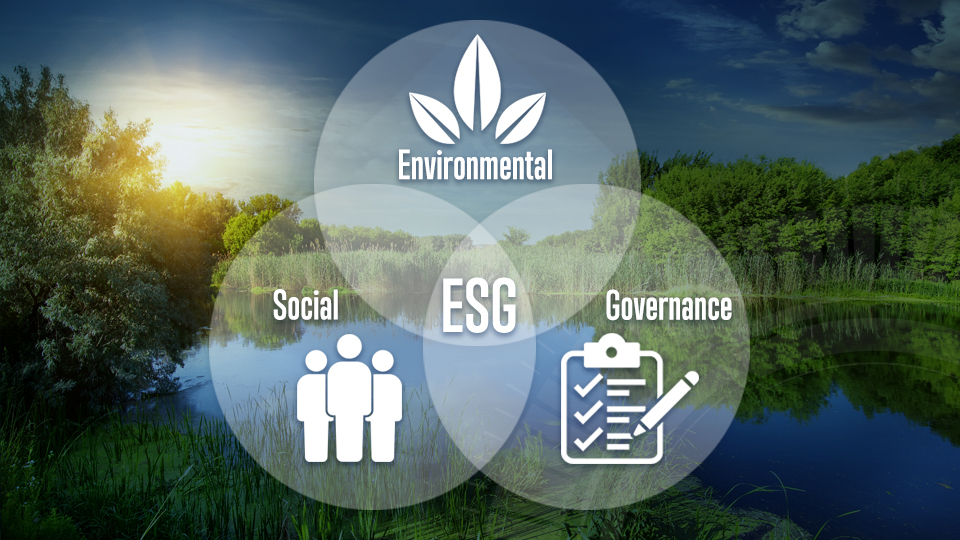ESG in the Energy Sector: Value Creation Through Decarbonization Strategies
Discussing how companies in the energy sector can implement decarbonization to support their environmental, social, and governance (ESG) goals
Published 12-10-21
Submitted by Tetra Tech

Tetra Tech’s Rachel Bigby, Scott Phillips, and Sarah Watts discuss how companies in the energy sector can implement decarbonization to support their environmental, social, and governance (ESG) goals.
What is ESG and how does it apply to the energy sector?
The concept of ESG can be ambiguous and complex in nature—and for myriad reasons. ESG considerations are unique to each organization, therefore there is no standard framework or approach that is a one-size-fits-all solution. ESG refers to three key components in business—environmental, social, and governance—and research now shows a direct link between ESG and financial performance. With increased focus and attention on mitigating the impacts of climate change, our energy sector clients are incorporating ESG best practices throughout their operations and value chain. Tetra Tech offers a full suite of ESG services, including recommending and developing decarbonization strategies for energy sector clients to move the needle forward on the E in ESG.
What is ESG?
The Environmental category encompasses elements such as climate change mitigation, greenhouse gas (GHG) emissions reduction, and natural resource management. The Social pillar includes elements such as poverty alleviation; data privacy and security; employee engagement; and diversity, equity, and inclusion (DEI) best practices. Governance includes the policies, procedures, and structures that are in place to support organizational accountability, such as executive pay, board diversity, and fair tax strategy.
How is decarbonization supporting the E in ESG?
Many energy industry clients are producing their first sustainability reports and making them available publicly. As the energy transformation from fossil fuels to renewables continues to gain momentum, companies are actively evaluating their impact and identifying ways to reduce their carbon footprint.
We have supported clients in their decarbonization journey in numerous ways, such as:
- Carbon sequestration: Actively remove carbon from the system through investments in nature-based solutions that bind carbon, such as reforestation, ecosystem restoration, and regenerative agriculture and invest in carbon capture and storage technology. Tetra Tech supports our clients using nature-based solutions to address climate change and develop projects with numerous co-benefits.
- Renewable energy transition: Transition toward more clean and renewable energy sourcing, including developing the infrastructure and energy storage capacity to support this transition, and investing in alternative energy sources such as hydrogen and other renewable and responsibly sourced fuels. Tetra Tech supports energy utility clients, like Dominion Energy, across the project life cycle as they transition to renewable power generation to achieve net zero emissions by 2050. Tetra Tech has also provided pre-FEED (front end engineering and design) technical review of blue hydrogen production technologies.
- Energy efficiency improvements: Use less energy through energy efficiency improvements, upgrade to more energy-efficient equipment and processes, reduce GHG emissions by repairing or replacing leaking infrastructure, and retire old, inefficient equipment that is no longer economically viable. Tetra Tech helps large public utility clients process customer meter data to analyze the impact of energy-saving improvements.
Decarbonization efforts are driven by several factors, including financial stakeholder expectations, tax incentives, and legislation. For example, ambitious climate and energy targets are being set at the state and federal levels, including President Biden’s recently announced solar power vision to provide 45 percent of United States energy by 2050. There is broad market support and development for renewables and global renewable energy investment, including the rise in issuance of green bonds.
How can Tetra Tech assist your organization on your decarbonization journey?
Tetra Tech is helping clients develop robust, flexible ESG programs and ensuring their successful implementation for program governance, operations, and continual improvement. We provide guidance to sustainability staff and transparency to client stakeholders. As companies strive to meet stakeholder and market expectations for decarbonization—and across ESG—Tetra Tech provides technical consulting and implementation services to help our clients leverage the data and systems they currently have, develop solutions to streamline workflows, optimize asset performance, and automate reporting requirements. As ESG practices continue to evolve and mature, Tetra Tech will be there to guide our clients and deliver cutting-edge solutions that are effective now and into the future.

Tetra Tech
Tetra Tech
Tetra Tech is a leading provider of high-end consulting and engineering services for projects worldwide. With 27,000 associates working together, Tetra Tech provides clear solutions to complex problems in water, environment, sustainable infrastructure, renewable energy, and international development. We are Leading with Science® to provide sustainable and resilient solutions for our clients. For more information about Tetra Tech, please visit tetratech.com or follow us on LinkedIn and Facebook.
More from Tetra Tech

